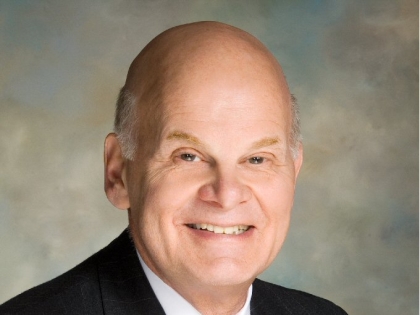
Senator Saland Continues the Fight to Keep the Hudson River Psychiatric Center Open
Stephen M. Saland
August 9, 2011
-
ISSUE:
- Mental Health
Senator Steve Saland (R, I, C - Poughkeepsie) today announced that communication is ongoing with Governor Cuomo as he remains diligent in his fight to keep the Hudson River Psychiatric Center (HRPC) open.
During the past several months, Senator Saland has persisted in presenting a reasoned argument to dissuade the Governor from proceeding with his plan to close the Hudson River Psychiatric Center. During a recent meeting with Commissioner Michael Hogan of the Office of Mental Health (OMH), Saland outlined a strong rationale for keeping the facility open, and offered alternative initiatives that could achieve the necessary savings to allow the State to maintain the integrity of the State Financial Plan.
“While I can appreciate the Governor’s position to reduce the cost of state government as a means of addressing the State’s current fiscal constraints, it makes no sense to close one of the most energy efficient, cost effective and safest facilities in the OMH system. The State should instead target inefficient and dangerous institutions for closure, which would ultimately save millions of dollars,” stated Senator Saland.
Senator Saland has implored Governor Cuomo and Commissioner Hogan to consider certain alternatives including transitioning community services from the State to qualified not-for-profit providers; allowing individuals who are dual eligible to enroll in Managed Care programs; and maximizing third party reimbursement for services.
According to Senator Saland and Assemblyman Miller who have worked jointly on this effort, the State has an interest in keeping the Dutchess County facility open, well beyond the local economic benefits derived. Millions have been invested in the modernization of HRPC under a nearly completed ten-year construction plan. The facility has consistently scored at the top of OMH facilities in Joint Commission Accreditation and CMS Certification reviews and ranks as one of the most energy efficient facilities in the system. Further, it has a strong and bonded relationship to community services, county mental health networks and voluntary providers.
“If it is all about dollars and cents, it would seem that the number one priority should be to work with not-for-profit providers and county services as opposed to severely limiting the quality services that are currently provided to the residents of HRPC’s catchment area,” Saland emphasized.
Share this Article or Press Release
Newsroom
Go to Newsroom
